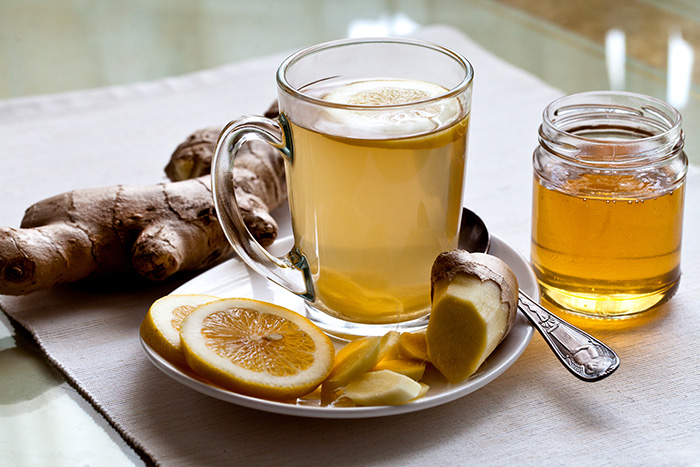Natural Immunity Boosters to Help You Through Winter and Beyond
January 20, 2025
Categories: Blog Posts
As the temperatures drop and the days grow shorter, winter brings not only snow and cozy nights but also an increased risk of seasonal illnesses. A strong immune system is your body’s best defense against the cold, flu, and other infections. While there is no magic pill to completely prevent illness, incorporating natural immunity boosters into your daily routine can support your body’s natural defenses and keep you feeling your best year-round. Here, we’ll explore evidence-based ways to strengthen your immunity naturally.
Please note: This blog is for informational purposes only and should not replace advice or treatment from a healthcare professional. Always consult your doctor for personalized medical guidance.
1. Understanding Immunity
The immune system is a complex network of cells, tissues, and organs that work together to protect your body from harmful pathogens like bacteria, viruses, and toxins. When your immune system is functioning optimally, it can recognize and fight off these invaders efficiently. However, several factors, including stress, poor nutrition, lack of sleep, and seasonal changes, can weaken your immunity. By supporting your immune system through healthy habits, you can give your body the tools it needs to stay resilient.
2. Nutritional Immunity Boosters
Your diet plays a significant role in supporting a healthy immune system. Here are some key nutrients and foods to prioritize:
- Vitamins and Minerals:
- Vitamin C: Known for its immune-boosting properties, vitamin C can be found in oranges, grapefruit, kiwi, bell peppers, strawberries, and broccoli.
- Vitamin D: Often called the "sunshine vitamin," vitamin D is essential for immune health. While sunlight is a natural source, you can also get vitamin D from fortified foods, fatty fish, and supplements if necessary.
- Zinc: This mineral supports the production of immune cells. Excellent sources include nuts, seeds, legumes, whole grains, and seafood like oysters.
- Antioxidant-Rich Foods:
- Brightly colored fruits and vegetables like blueberries, spinach, carrots, and kale are packed with antioxidants that help reduce inflammation and protect your cells.
- Probiotic Foods:
- Gut health is closely tied to immunity, as a significant portion of the immune system resides in the gut. Incorporate probiotic-rich foods like yogurt, kefir, sauerkraut, kimchi, and miso to support healthy gut bacteria.
- Herbs and Spices:
- Natural anti-inflammatory and antimicrobial spices like ginger, garlic, turmeric, and oregano not only add flavor to your meals but also support immune health. Ginger tea or turmeric lattes can be soothing options in colder months.
3. Hydration and Its Role
Staying hydrated is essential for overall health, including your immune system. Proper hydration helps maintain the integrity of your mucous membranes, which act as the body’s first line of defense against pathogens. Aim to drink plenty of water throughout the day, and consider hydrating options like herbal teas, broths, or water infused with lemon and cucumber for variety. Avoid excessive caffeine and sugary drinks, which can dehydrate you.
4. Lifestyle Choices
Healthy lifestyle habits can significantly impact your immune system. Here’s what to focus on:
- Sleep:
- Quality sleep is crucial for immune function. During sleep, your body produces and releases cytokines, which help fight infections and inflammation. Aim for 7-9 hours of restful sleep each night by maintaining a consistent bedtime, reducing screen time before bed, and creating a calming nighttime routine.
- Exercise:
- Regular moderate exercise can boost circulation and improve the movement of immune cells throughout your body. Activities like brisk walking, cycling, yoga, or light weight training are great options. Avoid overtraining, as excessive exercise can suppress immune function.
- Stress Management:
- Chronic stress can weaken your immune system by increasing cortisol levels. Incorporate stress-reducing practices like deep breathing, meditation, yoga, journaling, or spending time in nature to promote relaxation and balance.
5. Winter-Specific Tips
Winter poses unique challenges to the immune system. Here are some seasonal strategies to stay healthy:
- Fight Off Colds:
- Sip on warm herbal teas infused with honey, ginger, or lemon to soothe your throat and support hydration.
- Use a humidifier in your home to keep the air moist and prevent your nasal passages from drying out, which can make you more susceptible to infection.
- Hygiene Practices:
- Wash your hands frequently with soap and water for at least 20 seconds, especially after being in public places.
- Avoid touching your face, particularly your eyes, nose, and mouth, to reduce the risk of transmitting germs.
6. Long-Term Immunity Habits
Building a strong immune system isn’t just about winter; it’s a year-round commitment. Focus on:
- Eating a balanced diet rich in whole, unprocessed foods.
- Staying active and maintaining a healthy weight.
- Prioritizing mental health and maintaining strong social connections.
- Getting regular check-ups to address any underlying health concerns.
7. Myths About Immunity Boosters
It’s important to separate fact from fiction when it comes to boosting immunity. Here are a few common myths:
- "Taking vitamin C supplements can prevent colds": While vitamin C can reduce the severity and duration of a cold, it doesn’t guarantee prevention.
- "More supplements mean better immunity": Over-supplementing can sometimes do more harm than good. It’s best to get nutrients from food or consult your doctor about safe supplementation.
- "Quick fixes work": Building a strong immune system takes time and consistency. Avoid relying on fad products or unverified remedies.
8. Call to Action
Your immune system works hard to protect you, and small, consistent changes can go a long way in keeping you healthy. Start by incorporating some of these natural immunity boosters into your routine and paying attention to how your body responds. If you have specific health concerns or are considering supplements, consult your healthcare provider for personalized advice.
Stay proactive and take steps to prioritize your health—not just this winter, but all year long.
